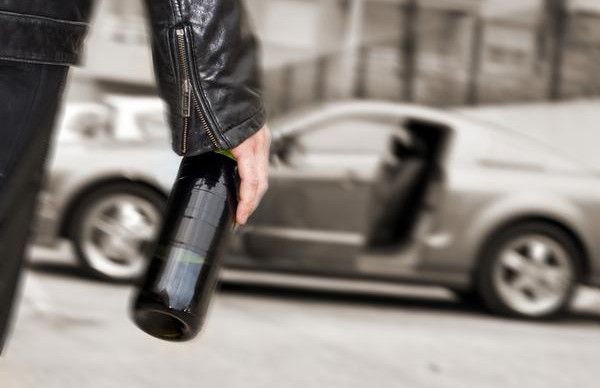With the rise of using your smartphone for, well, everything, there have been a number of apps and devices that hope to help drivers make better choices while participating in social drinking. Products such as Alcohoot, Breathometer Breeze, and BACtrack Mobile and Vio work to measure your blood alcohol content (BAC) through plugging into your phone or Bluetooth, and then analyzing the results on your phone. They’re innovative, fun, and can be useful in promoting safer drinking habits…but do they work? Read on to learn more about your options in choosing a smart breathalyzer, and if doing so is even worth it.
Alcohoot
Once dismissed as gimmicky, the rise of breathalyzers began with Alcohoot and has been continually improving over the past several years. This device plugs directly into your phone through the headphone jack, and is available in bright red, white, and black. It’s been around since 2013, and has a number of additional features including tracking your intake over time and across sessions, as well as the ability to suggest a cab service when you’re too intoxicated to operate a motor vehicle. It costs $99.99 and is available online.
Breathometer Breeze
Expanding on their original $49.99 plug in model, the Breathometer Breeze is one of the first Bluetooth connected devices and costs $79.99 on their website. It has many of the same features as Alcohoot, and the company is also expanding into other breath-reading ventures. Listed online is their upcoming ‘Mint’ version, which hopes to additionally measure non-drinking related breath quality and hydration levels.
BACtrack Mobile and BACtrack Vio
Both devices from the BACtrack parent company are compatible with all Apple products, including the new Apple watch. The keychain sized Vio retails for $49.99 and the Mobile Pro is available for $99.99. Both are Bluetooth capable, and their website claims that their products are more accurate than any other smart breathalyzers out there.
The Verdict
The breathalyzers have varying degrees of effectiveness, and none of them can convincingly measure up to police-level devices. They all warn not to trust their product when making driving decisions after drinking, and testing inaccuracies could dangerously give a person a pass on being ‘okay to drive’ when intoxicated. Still, the use of these breathalyzers will likely spur a conversation about the acceptability of driving after social drinking, and hopefully curb the number of drinkers who get behind the wheel after a night out.
All of the devices provide a dedicated function to calling a cab, a clock that lets you know when you’ll be safe to drive again (or at least, not legally drunk), and some even include features to look up finding a hotel in the area. With higher accuracies and more consistency, smartphone breathalyzers may soon be a common sight in bars across the country, but it’s still consumers’ responsibility to make the safe and responsible decision for everyone on the road, as well as for their own well being. But sometimes things happen and we find ourselves in a sticky situation. In the event that you’ve been charged with driving while intoxicated, be sure to seek out legal assistance as soon as possible. Call me, attorney Robert E DePersia II, at (856) 795-9688 for a free consultation. Over the past 29 years, my expertise in this area has successfully helped thousands of clients and earned me recognition as one of the top DWI defense attorneys in the state of New Jersey.


